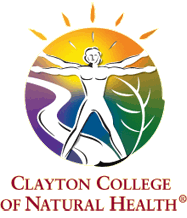Clayton College of Natural Health
Clayton College of Natural Health was an unaccredited American distance-learning natural health college based in Birmingham, Alabama, offering classes in various forms of alternative medicine. The college was founded in 1980 by Lloyd Clayton Jr. as the American College of Holistic Nutrition and has faced significant criticism and legal challenges over its accreditation and educational practices.
History[edit | edit source]
Clayton College of Natural Health was established with the aim of providing education in natural health and nutrition, responding to a growing interest in these areas. Over the years, it expanded its curriculum to include a range of programs in herbal medicine, naturopathy, nutritional counseling, and other alternative health practices. Despite its expansion and the increasing popularity of alternative medicine, the college's lack of accreditation from a recognized accrediting agency led to controversy and skepticism regarding the validity of its degrees.
Programs[edit | edit source]
The college offered various diploma and degree programs, including a Doctor of Naturopathy, Master of Science in Natural Health, and Bachelor of Science in Holistic Nutrition. These programs were delivered through distance learning, allowing students to study from home at their own pace. However, the absence of formal accreditation meant that graduates often faced challenges in obtaining licensure or recognition for their degrees in many states and countries.
Accreditation and Controversy[edit | edit source]
Clayton College of Natural Health was not accredited by any agency recognized by the United States Department of Education or the Council for Higher Education Accreditation. This lack of accreditation raised questions about the quality and rigor of its programs, as well as the employability of its graduates. Critics argued that without proper accreditation, the education provided by the college could not be assured to meet any standardized academic or professional criteria.
Closure[edit | edit source]
The college announced its closure in July 2010, citing the economic downturn and changes in the regulatory environment for higher education as reasons. At the time of its closure, it was reported that the college had approximately 300 active students. The closure left many students and alumni facing uncertainty about the value and recognition of their degrees.
Legacy[edit | edit source]
The legacy of Clayton College of Natural Health is mixed. On one hand, it played a role in popularizing natural health and holistic nutrition education at a distance. On the other hand, its lack of accreditation and the controversy surrounding its educational practices have served as a cautionary tale about the importance of accreditation and regulatory oversight in higher education, especially in fields like natural health where professional licensure and recognition are critical for practice.
Navigation: Wellness - Encyclopedia - Health topics - Disease Index - Drugs - World Directory - Gray's Anatomy - Keto diet - Recipes
Search WikiMD
Ad.Tired of being Overweight? Try W8MD's physician weight loss program.
Semaglutide (Ozempic / Wegovy and Tirzepatide (Mounjaro) available.
Advertise on WikiMD
WikiMD is not a substitute for professional medical advice. See full disclaimer.
Credits:Most images are courtesy of Wikimedia commons, and templates Wikipedia, licensed under CC BY SA or similar.
Contributors: Prab R. Tumpati, MD

